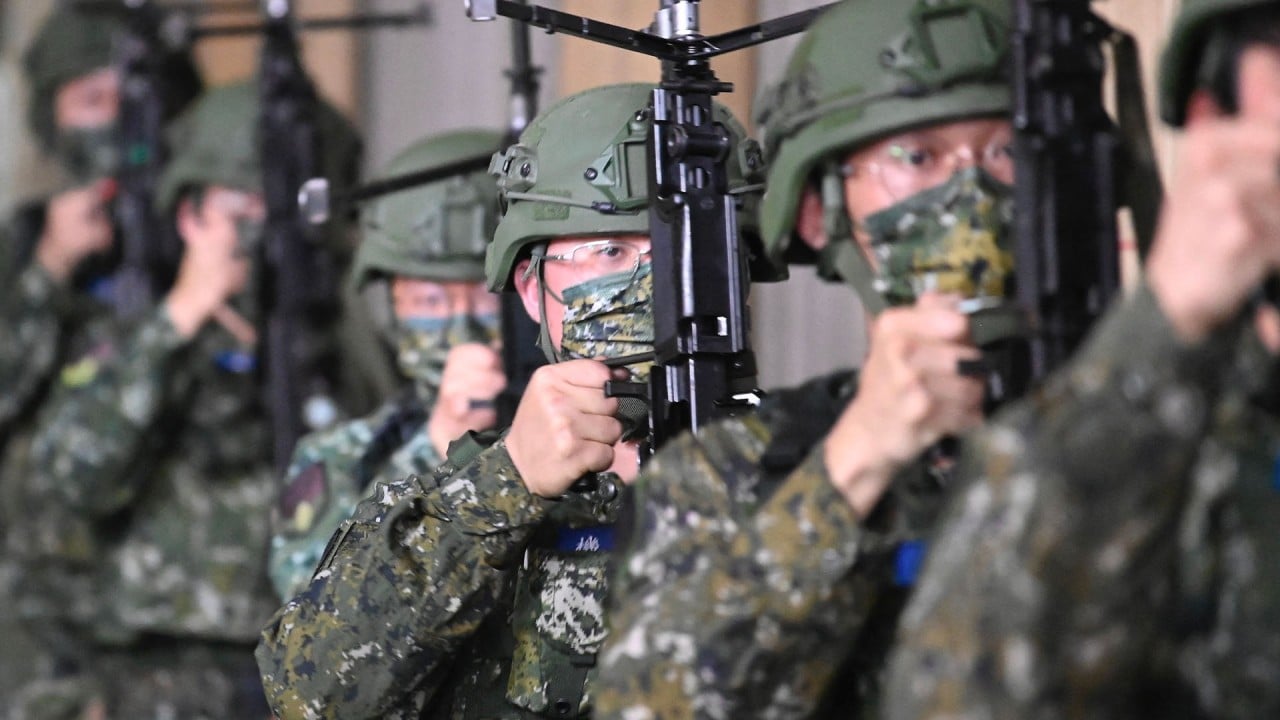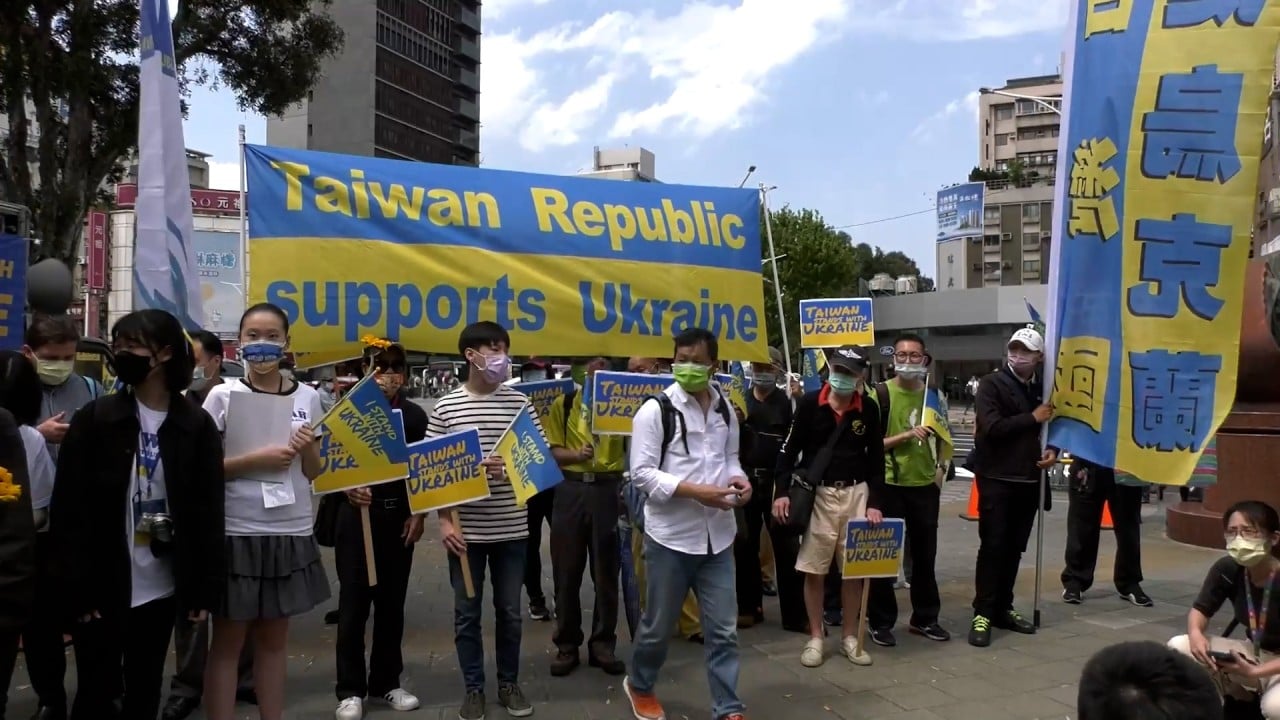
Is Taiwan’s US$95 million missile deal value for money?
- Mainland analysts say the Patriot missile system is expensive to maintain and will not offer protection against attacks
- However, Taipei may receive a morale boost from the deal and feel it is a way of buying US protection and support
The US State Department this week approved a US$95 million package of equipment, training and other services to support the island’s Patriot missile defence system.
PLA could learn from Ukraine war and use paramilitary in Taiwan, article says
It was the third American arms deal with the island since Joe Biden took office a year ago.
Taiwan received its first PAC (Patriot Advanced Capability)-2 systems in 1997 and has since upgraded the system. Local media reports say it now has more than 400 PAC-3 missiles.
Taipei has also said it will also receive PAC-3 Missile Segment Enhancement systems from the United States in 2025 and 2026.
Beijing regards the island as a breakaway province and has never renounced the use of force to bring it back under its control.
While Taiwan’s foreign ministry said the sale could help the island deter the mainland’s threats, mainland military analysts said the Patriot was ineffective in defending the island but it was sending its money to the US in exchange for its protection and support.
Zhou Chenming, a researcher from the Yuan Wang military science and technology think tank in Beijing, said the Patriot Defence System had not had a major upgrade for more than a decade.
He said Taiwan urgently needed to upgrade its missiles to ensure that its important facilities had a chance to survive a possible attack by the mainland, “but there is a high probability that they will not survive”.
Beijing warns of ‘forceful measures’ if Pelosi visits Taiwan
“In fact, the improvement to Taiwan’s air defence capabilities through these [Patriot deals] is limited, can only be used to boost morale, and create the illusion that the United States and Taiwan are standing together during sensitive times,” he said.
But Taiwanese observers argued the deal, involving logistical support, maintenance and spare parts, was crucial for Taiwan’s operation of the missile system, which is its first line of defence against missile attacks.
Chieh Chung, an associate research fellow with the National Policy Foundation in Taipei, told Taiwan’s Central News Agency that PAC-3 missiles were smaller, more agile, more accurate and could be used in large numbers which made them highly effective against ballistic missiles.
Fu Qianshao, a retired equipment specialist from the PLA Air Force in Beijing, said the island’s upgraded PAC-2 and PAC-3 missiles might be capable of intercepting aircraft, but would struggle to hit mainland China’s ballistic missiles and could easily be destroyed in combat.
Fu added that maintaining the system was expensive, but said: “The United States is creating trouble through the arms sale … and making money from Taiwan, which Taiwan clearly knows, but it still buys the expensive arms to get protection from the US.”



